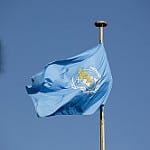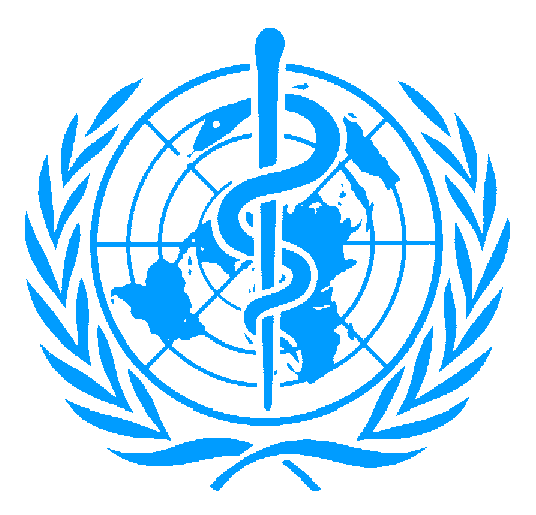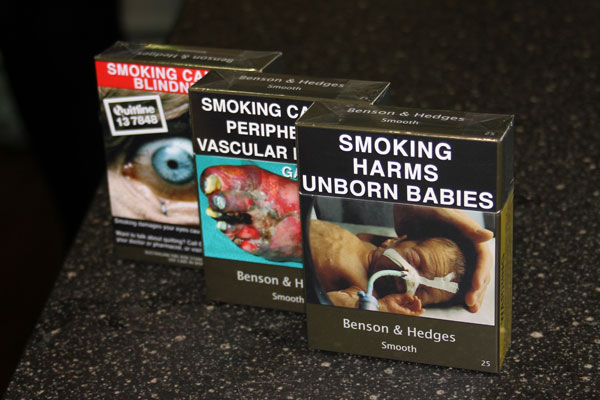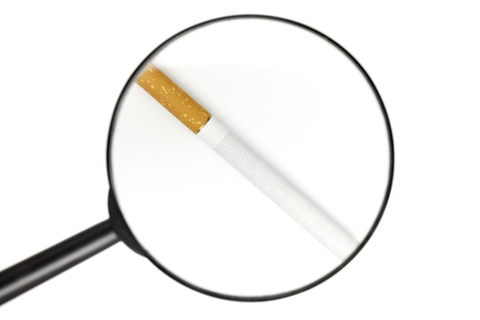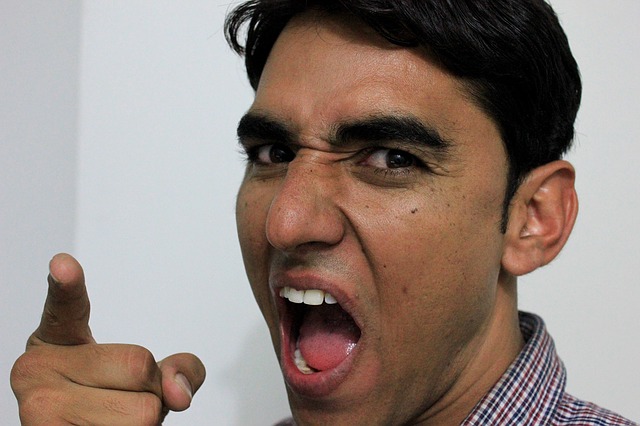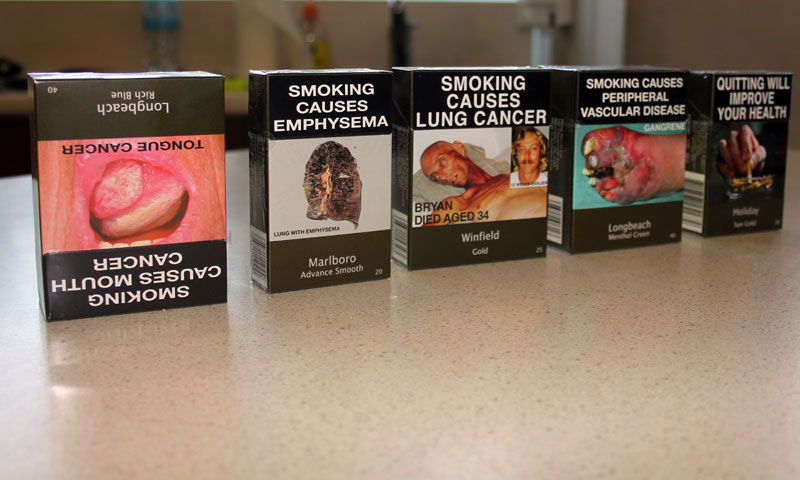British American Tobacco (BAT), which employs more than 55,000 people, is launching in all the countries in which it operates a new range of benefits aimed at helping new parents employed by the company balance their home and work lives during the first year of parenthood.
Effective globally from January 1, the new benefits include a minimum of 16 weeks’ fully-paid maternity leave for new mothers and adoptive parents and includes also a return to work guarantee, flexible working opportunities and an online advice service offering coaching support for all parents whenever they need it.
BAT said the initiative would make a major difference by offering significantly better terms than existing legal requirements in ‘many’ of the 180 countries in which the group operated, including the US, where new mothers employed by Reynolds American Inc, which was acquired by the group last year, currently received on average six weeks paid leave, in line with US legislation.
Some of the other countries that will benefit from the initiative include: Algeria, Argentina, Egypt, Indonesia, Morocco, Nigeria, Pakistan, South Korea and Taiwan. In all, the new benefit will go above and beyond local requirements in 26 countries where BAT directly employs 20,000 people.
“Here at BAT, it’s of such great importance to us that our organisation is made up of as many different types of people as possible – ensuring they are rewarded, appreciated and supported, especially at times when they need it most,” Nicandro Durante, BAT’s CEO was quoted as saying in a press note issued today.
“We want to ensure no-one at BAT has to choose between their career and their family and that’s why this will be available to colleagues all over the world. We are proud to be offering this new range of parental benefits on a global scale and we are looking forward to seeing the changes this will hopefully make to the lives of both our current and future employees.”
Tag: World

New benefits from BAT

Regulatory short-cut sought
Delegates at the eighth session of the Conference of the Parties (COP8) to the World Health Organization’s Framework Convention on Tobacco Control (FCTC), have recommended regulating heat-not-burn products in the same way as combustible cigarettes are regulated, according to an Agence France Presse story relayed by the TMA.
COP8 was held in Geneva on October 1-6.
Such regulation would ban the advertising, promotion and sponsorship of heat-not-burn products, which many people see as providing effective, safer alternatives to combustible cigarettes.
The recommendation is not legally binding and will serve only as a guideline.
Meanwhile, the Netherlands is due to host the COP9 meeting in 2020, according to a report in the NL Times, relayed by the TMA and citing a WHO announcement made at the closing ceremony of COP8.
The Netherlands’ State Secretary of Public Health, Wellbeing and Sports Paul Blokhuis took the initiative to bring the conference to the Netherlands.
Reportedly, he is considering Amsterdam, Rotterdam, The Hague or Utrecht to host the conference.
“Around two hundred countries and organizations come together at this conference to curb the tobacco industry’s influence, to discourage smoking worldwide and, for example, to limit the damage of tobacco to the environment as much as possible”, Blokhuis said.
“It is very good news that we are the next host country. That also brings the smoke-free generation one step closer. Both in the Netherlands and globally.”
The industry has no clothes
United Nations agencies must join forces at the policy level and refuse interference from tobacco companies in their programs so the destructive impact of tobacco can be effectively addressed and lives can be saved, according to a UN News story quoting the head of the World Health Organization’s Framework Convention on Tobacco Control (FCTC) Secretariat, Dr. Vera Luiza da Costa e Silva.
The News story said the FCTC, which was celebrating its 15th anniversary of adoption this year, was a global health treaty that advocated the control of tobacco production, sale and use, as a way to reduce tobacco-related illnesses, deaths, environmental degradation and poverty across the world.
‘According to a report by WHO and the UN Development Programme (UNDP), it is estimated that up to one billion people could die from tobacco-related diseases this century,’ the story said. ‘Currently, over seven million people die every year due to tobacco use.
‘In addition, tobacco costs the global economy over a trillion dollars annually in medical expenses and lost productivity. As for the environmental impacts – deforestation and soil degradation for tobacco cultures, as well as water and soil pollution from cigarette littering – they cannot be overstated.’
“In 15 years, we have made a lot of progress, with tobacco-control measures in place in most of the world’s countries for example,” said da Costa e Silva. “But we are still facing a great deal of interference from the tobacco companies in government decision-making and even inside our own house, within UN agencies.”
Article 5.3 of the Convention requires that parties to the treaty ensure that their public health policies are protected ‘from commercial and other vested interests of the tobacco industry’. The article is based on the idea that there is a fundamental and irreconcilable conflict between the tobacco industry’s interests and public health interests.
“They are wolves masquerading as sheep,” said da Costa e Silva, referring to poverty-reduction programs and other development projects that tobacco industry giants are funding, in partnership with several international inter-governmental organisations.
Packs finding welcomed
US-based Action on Smoking and Health (ASH) has welcomed Thursday’s decision by the World Trade Organization (WTO) in favor of Australia’s regulations on standardized tobacco-product packaging.
‘The tobacco industry has long used litigation as a weapon against meaningful public health measures,’ ASH said. ‘Australia deserves credit for standing up to the barrage of lawsuits that followed its implementation of plain packaging, including a domestic constitutional challenge, a direct trade challenge under an investment agreement, and the WTO challenge launched by four countries on behalf of the industry (Ukraine, the original litigant, eventually dropped its challenge).’
ASH said that the WTO decision had not come as a surprise for the tobacco industry. ‘Their litigation strategy is not focused on winning but on imposing economic penalties on countries that try to push the envelope on tobacco control, in the hopes that other governments will shy away, a strategy often called “regulatory chill”,’ it said. ‘Unfortunately, the tactic is all too often successful. Several countries delayed or ended plain packaging efforts as a result of the Australia case.’
ASH went on to say that there existed an irreconcilable conflict of interest between industry profits and public health.
‘In addition to prioritizing health over profits, this WTO decision demonstrates the rights of governments to legislate in the public interest,’ it said. ‘International trade law has long been skewed in favor of corporate rights. Today the WTO panel demonstrated its understanding that governments have a duty to their citizens, not foreign investors.’
ASH said that Australia should not have had to litigate these trade cases. ‘Corporate litigation rights are included in many trade agreements as a backstop for cases where domestic rule of law is weak,’ it said. ‘This is certainly not true for Australia, where Big Tobacco’s case was heard fairly.
‘Action on Smoking and Health will continue to work diligently for exclusions in trade agreements that protect tobacco control regulations from challenges, as we did in the draft Trans-Pacific Partnership Agreement.’
FCTC protocol ratified
The conditions have been met for the entry into force in 90 days of the Protocol to Eliminate Illicit Trade in Tobacco Products.
The Protocol is the first legally-binding agreement adopted under the World Health Organization’s Framework Convention on Tobacco Control (FCTC).
In a note posted on the FCTC’s website, the Secretariat of the FCTC said on Wednesday that with the ratification of the UK the necessary number of Parties to the Protocol had been reached.
The Protocol was adopted by the Parties to the FCTC in 2012.
It is said by the FCTC ‘to contain a full range of measures to combat illicit trade distributed in three categories: preventing illicit trade, promoting law enforcement and providing the legal basis for international co-operation’.
‘Moreover, it aims to secure the supply chain of tobacco products, through licensing, due diligence and record keeping, and requires the establishment of a global tracking and tracing regime that will allow governments to effectively follow up tobacco products from the point of production to the first point of sale,’ the note said. ‘In order for it to be effective, the Protocol provides for intensive international co-operation including on information sharing, technical and law enforcement, co-operation, mutual legal and administrative assistance, and extradition.
‘Today’s (Wednesday’s) fulfilment of the legal requirements for its entry into force, will allow the Parties to hold the first session of the meeting of the Parties to the Protocol (MOP1) in Geneva, Switzerland, from 8 to 10 October 2018 following the Eighth Conference of the Parties (COP8) of the WHO FCTC.’
No trace of reality
The ‘major tobacco companies’ are acting as corporate chameleons, spending millions on make-overs, trying to convince the world they have changed when they have not, according to a story by AB Gilmore and A Rowell of the University of Bath.
The story, published as a Tobacco Control blog, said that, shattering the ‘expensive illusion’ of change was the latest evidence, published this week in Tobacco Control, that had uncovered one of their greatest scams.
Not only were tobacco companies still involved in tobacco smuggling, but they were positioning themselves to control the very system governments around the world had designed to stop them from doing so.
Their elaborate and underhand effort, implemented over years, involved front groups, third parties, fake news and payments to the international regulatory authorities meant to hold them to account.
Towards the end of their piece, Gilmore and Rowell said that many intergovernmental organisations and national tax and customs authorities around the world appeared to have swallowed, without question, the tobacco industry’s misleading version of events.
‘It is vital that they wake up and realise what is at stake: if the tobacco industry’s tricks work, they will be left in charge of the very system meant to keep them in check, the system meant to stop them from smuggling their own products, the system meant to safeguard government revenues,’ they said.
‘Yet identifying which are the industry’s latest front groups, spokespeople, linked companies or coalitions is increasingly difficult given the lengths industry will go in order to disguise these interests.
‘If there is a simple message it is this: no government should implement a track and trace system linked in any shape or form to the tobacco manufacturers. In short, no-one can trust the tobacco industry chameleons.’
Packaging fight continues
The drive to impose standardized packaging on tobacco products in the hope of discouraging current and potential smokers, has pitted the World Health Organization and the EU against the tobacco industry, according to a story by Claire Stam and Sarantis Michalopoulos for euractiv.com.
The industry says standardized packaging has no discernible impact on smoking rates but opens the door to black markets. On the other hand, the WHO insists that the measure is effective and rules out any link to the illegal trade.
From its side, the EU is expecting the number of smokers to fall by 2.4 million during the five-year period following the introduction of the its revised Tobacco Product Directive (TPD). The TPD, which came into force in May 2016, requires that 65 percent of a tobacco pack’s surface should include health warning graphics and text, though it leaves open to member states whether they introduce standardized packaging.
New research conducted by the consultancy group Europe Economics and commissioned by Japan Tobacco International, showed that the introduction of standardized packaging has had no statistically-significant impact on smoking prevalence or consumption in the UK, where standardized packaging was imposed.
The research, which was based on government data found that three out of five UK adults believed standardized packaging would lead to an increase in the number of illicit cigarettes, benefiting organised crime.
“What this evidence and public opinion research shows is that plain packaging should never have been introduced in the UK,” Ben Townsend, head of EU Affairs for JTI, told EURACTIV.com. “Other European countries considering the measure should think twice before importing a failed experiment, which appears to have back-fired big time.
“One year ago, the UK government introduced plain packaging for tobacco products in the absence of clear supportive evidence from Australia [at the time, the only country to have introduced the policy]. Five-and-a-half years into the Australian experiment, we see that plain packaging has completely failed to reduce smoking rates.”NCD strategy proposed
Growing evidence from the US and other countries suggests that less-harmful products, such as smokeless tobacco, heat-not-burn devices, and electronic cigarettes, are viable alternatives to combustible cigarettes, according to a comment made by The Heartland Institute to the World Health Organization’s Independent High-level Commission on non-communicable diseases (NCDs).
The comment, signed by Lindsey Stroud, the Institute’s state government relations manager, said that these products were far more effective smoking-cessation tools than were those provided by the US’ current system of taxation and regulation, which had been remarkably ineffective in helping smokers quit.
‘We believe products such as smokeless tobacco, heat-not-burn, and electronic cigarettes have significant potential in aiding the WHO in its mission to eradicate NCDs,’ Stroud said. ‘As the evidence for their potential as effective cessation tools continues to grow, public health agencies should focus on policies that promote their use. Not only should these products be regulated differently than traditional cigarettes, public health groups should inform the public of their health potential and use these tools to combat smoking.
‘The Heartland Institute recommends the WHO:- ‘Assist nation-states with the creation and oversight of tobacco-control programs that promote the use of less-harmful products for cessation aids. Significant health gains will be lost without the promotion of these products, as there is ample evidence indicating they are some of the most effective cessation tools.
- ‘Governments should promote policies that encourage the use of less-harmful alternatives to cigarettes, rather than creating regulatory hurdles that prevent smokers from using these products.
- ‘WHO should encourage governments to continue working with the private sector to find free-market alternatives to combustible tobacco cigarettes.’

Appeal package
Ujal Singh Bhatia, chairman of the World Trade Organization’s appellate body, has said he expects Cuba, the Dominican Republic, Honduras and Indonesia to appeal against the WTO’s yet-to-be-publicized ruling on Australia’s law on standardized tobacco packaging, according to a Bloomberg story relayed by the TMA.
The ruling will apparently say that the law was a legitimate public health measure and did not constitute an illegal barrier to trade.
Bhatia said once an appeal was triggered, the WTO appellate body was required to consider the matter and issue a ruling within 90 days.
However, he added that the timeline might be extended because of the complexity of the dispute and a shortage of panelists in the WTO’s appellate system.
The countries alleged that the measure imposed ‘unfair’ restrictions on the use of trademarks, geographical indications and other markings in violation of several WTO agreements.
The WTO has yet to circulate publicly its final dispute ruling, partly because of the time required to translate the ruling.
Taxing pollution
Polluted air can be likened to cigarette smoke, and a new app can tell you how many cigarette-equivalents you are ‘smoking’ while walking through various cities of the world, according to a story by Martin Echenique for citylab.com.
Shit, I Smoke! was created by Brazil-born designer Marcelo Coelho and France-born app developer Amaury Martiny after they read a study that analyzed air pollution and its link with cigarette smoke.
The article, co-written by Richard Mueller, a MacArthur fellow and physics professor at the University of California, Berkeley, described a mathematical model that compared smoke and PM2.5 particles.
‘Here is the rule of thumb: one cigarette per day is the rough equivalent of a PM2.5 level of 22 μg/m3 (…),’ the study reads. ‘Of course, unlike cigarette smoking, the pollution reaches every age group.’
The study found that, in 2016, Beijing had on average a PM2.5 level of 85 μg/m3, which equates to four cigarettes a day, while Los Angeles County registered an average of half a cigarette a day, or 12 μg/m3.
Using the formula in the article, Coelho and Martiny designed an ad-free interface that uses live pollution data from hundreds of air quality stations in cities around the world and converts the station’s PM2.5 number into the number of cigarette-equivalents being inhaled by a person in real time.
“The interface is pretty straightforward: it geolocates your phone, connects to the database, and shows the number of cigarettes smoked that day,” Coelho was quoted as saying.
The app apparently reveals that Parisians can inhale the equivalent of between three and six cigarettes a day, while a person in Delhi could be ‘smoking’ up to 20 cigarettes on a bad day.


